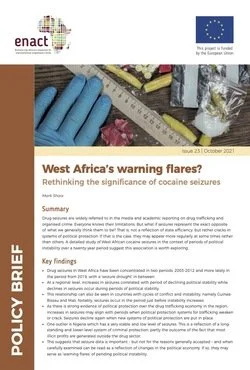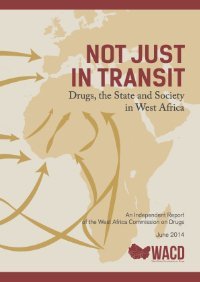By Lyes Tagziria and Lucia Bird Ruiz Benitez de Lugo
West Africa is one of the world’s most vibrant and diverse regions; home to over 400 million people, around 1 200 languages and many different religious and ethnic identities. The region’s economic growth since the turn of the century has been impressive, resulting in a significant reduction in absolute levels of poverty. Nevertheless, with rampant insecurity at the hands of violent extremists, armed groups and criminal bandits, political instability, limited economic opportunities for the region’s burgeoning youth population and the worsening impact of climate change, West Africa faces many complex challenges.
With over 20 000 conflict fatalities across the region in 2022 alone, violence in West Africa, especially in the Sahel region, is at unprecedented levels. According to the ACLED Conflict Severity Index, three countries in West Africa – Mali, Burkina Faso and Nigeria – have extreme or high levels of conflict. Illicit economies play an important role in sustaining instability across the region.
The security and well-being of citizens across the ECOWAS region is affected not only by violent conflict, but by myriad, interwoven factors from economic prosperity to political representation, justice and security, social cohesion, freedom and much more. In this context the concept of human security, as opposed to the narrower concept of state security, has increasingly become the focus of policymakers across West Africa.
As set out in the ECOWAS Country Risk and Vulnerability Assessments (CRVAs), ‘the human security framework provides a holistic approach to understanding different threats that affect individuals’ lives, whether this is through conflict, health, food, environment, or other social, political or economic factors’.
A key component of this human-centric approach to security, focused on reducing harm to the people of West Africa, is prevention. This requires comprehensive, accurate and timely data on existing and future threats and is therefore one of the main rationales behind the work of the ECOWAS Commission, through both the Early Warning Directorate and the ENACT Organized Crime Index. While the objectives of the index are manifold, its principal aim is to build an evidence base to underpin responses to organized crime.
The 2021 ENACT Organized Crime Index identified the West Africa region as having the second-highest level of criminality on the African continent, with human trafficking, drugs and the illicit trade in non-renewable resources forming the most prevalent criminal markets. The region placed in second once again in the latest iteration of the index, the 2023 Global Organized Crime Index.
In 2023, West Africa overtook Southern Africa as the region with the highest resilience score on the continent, pointing to comparatively high levels of resilience even in areas affected by significant criminal markets. The index highlighted legislative frameworks, civil society actors and the region’s international collaboration in the fight against organized crime as relative regional strengths. Overall levels of resilience, however, both objectively and within the global context, are weak.
The index’s findings provides a statistical underpinning for the relationship between illicit markets, security and stability, demonstrating a strong negative correlation between criminality and peacefulness. In other words, the less peaceful a country, the more likely it is to be afflicted by high levels of organized crime. In other words, the less peaceful a country, the more likely it is to be afflicted by high levels of organized crime. Responding to illicit economies which pose a threat to these goals must be a central element of programming. In line with this, the Organized Crime Resilience Framework (OCRF) examines the major organized-crime threats facing the West African region, as identified by the index and the CRVAs published by the ECOWAS Early Warning Directorate.
While the index is devoted to organized crime, the CRVAs focus on conflict and human security more broadly. Drawing on both these datasets engenders a conflict-sensitive and human-security-focused assessment of organized crime in West Africa, encompassing threats and vulnerabilities, as well as potential sources of resilience.
Geneva, SWIT: Global Initiative Against International Organized Crime, Ecowas Commission, 2023.








